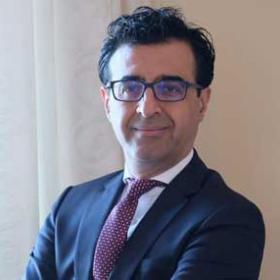
When the Battle for Mosul Ends, the Fight for Iraq Begins
Kawa Hassan, the director of the EastWest Institute's Middle East and North Africa program, breaks down the vital requirements to develop Iraq after the imminent military defeat of the Islamic State terrorists. Writing for the National Interest, Hassan advocates for transforming the global coalition to defeat ISIS into the global coalition to rebuild Iraq.
Iraq is at a crucial crossroads. The Iraqi government, backed by the United States and its coalition partners, is on the brink of retaking all major urban territories once occupied by ISIS. While very encouraging, the global coalition’s focus on militarily defeating ISIS obscures the fact that Iraq is beset by worsening sectarian tensions and proxy wars, political dysfunction and growing humanitarian crises. These perils, left unaddressed, will not only cripple international and diplomatic efforts, but also plunge Iraq further into instability and conflict long after ISIS is defeated on the battlefield.
The future of Iraq is important, not just for Iraqis but for the region and the international community. What the international community and regional states do or do not do will have a significant impact on that future. Today, by consolidating and capitalizing on the gains that the Iraqis, United States and international community have made in this second war against violent extremism in Iraq, the hope is that the same global coalition can avoid becoming entangled in a third and fourth and finally pave the way for rebuilding Iraq politically and economically.
In brief, the reality on the ground is as follows: the loosely held anti-ISIS alliance—which includes the Iraqi army, Shia militias, Sunni tribal units and Kurdish peshmerga forces—will likely dissolve; Iraqi-Kurdish contention over oil and gas revenues, budgets and land disputes is growing; and intra- and inter-Iraqi competition between and within communities over power and influence is flaring.
Additionally, corruption, falling oil prices, a declining economy, and high levels of devastation from cycles of ravaging war against the Islamic State will not only continue to undermine Iraq’s recovery and stability but will also be a key factor in disenfranchising Iraqi society, particularly the youth. This point is critical. Violent extremism flourishes in societies where state institutions are seen as oppressive, corrupt, ineffective and illegitimate. Unfortunately, all these factors are present in today’s Iraq.
Click here to access the full analysis.

